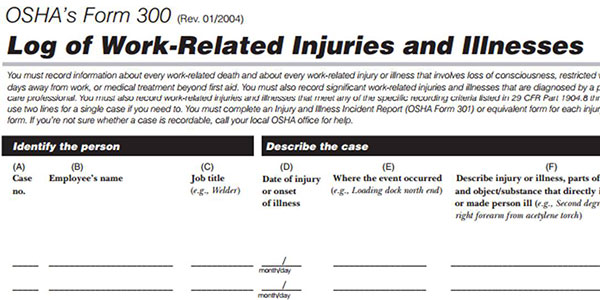The food movement is as much about the welfare of animals and workers as it is about the health and wellbeing of the planet and its inhabitants. It’s all connected. Global and regional food systems are as strong as their weakest links. Along with the voices of conscious consumers, this rationale prompted legislation aimed at ensuring more humane husbandry practices and safer working conditions. But the change in our country’s leadership appears to be changing the trajectory of progress.
We recently wrote about the uncertain future of the Organic Livestock and Poultry Practices (OLPP) rule. It was signed into law on January 19th with an effective date of March 20th. It is now under review. The effective date was pushed back 60 days, and there is speculation it will be further delayed or nixed altogether.
On the heels of that setback, the Senate just voted to roll back the Recording and Reporting Occupational Injuries and Illnesses (RROII) regulation—an executive order that took effect in two parts on August 10, 2016 and January 1, 2017.
ROII requires employers in certain industries, such as meat and poultry processing, to electronically submit to the Occupational Safety and Health Administration (OSHA) the injury and illness data that they are already required to keep under existing regulations. It also requires employers to inform employees of their right to report work-related injuries and illnesses free from retaliation. This includes having a reasonable procedure for reporting work-related injuries and illnesses that does not deter or discourage employees from reporting.
To understand the need for these basic changes, it is important to understand a few things about the meat and poultry packing industry. The Government Accountability Office (GAO), an independent non-partisan agency, estimates that 30 percent of the workforce is comprised of immigrants. And according to multiple sources, it employs a significant number of undocumented workers.
In his article for the Guardian entitled “Senate votes to repeal labor protection laws that safeguarded poultry workers,” Sam Thielman states that the low-wage food processing industry “…relies heavily on easily exploited undocumented laborers.”
Thielman reports that Debbie Berkowitz, a former senior official with OSHA, said she believed that “…the chicken processing industry targets recent refugees and undocumented immigrants for employment because they are less likely to complain.” She goes on to say,” You shouldn’t be allowed to get away with hiring workers and then terrorizing them to get away with unsafe working conditions.
In her CBS Money Watch post entitled “Just how dangerous is meat and poultry packing?” Kate Gibson explores safety concerns and addresses the discrepancy between what is reported and what is. She notes that evaluations by the Centers for Disease Control and Prevention (CDC) and academic studies found the nation’s estimated 526,000 meat and poultry processing workers face hazards including tasks involving repetitive motion and prolonged standing linked to musculoskeletal disorders, exposure to chemicals and pathogens, and traumatic injuries from machines and tools.
Gibson mentions that the GAO reports injuries and illnesses are on the decline, but are also under-reported. For example, Tyson reported 34 instances of amputation or hospitalized over a nine-month period starting Jan. 1, 2015. That number excluded 10 states in which Tyson operates that happen to run their own OSHA programs. Furthermore, administrations of first aid do not have to be reported.
Another work-around is using contracting agencies to staff facilities. People who work through these agencies are often not classified as being processing industry workers. Facilities effectively distance themselves from their workers.
When you combine the above factors with production demands, more issues emerge. In Gibson’s article, Oliver Gottfried, senior advocacy adviser at Oxfam America, states that the drive to maintain or increase production “pushes workers beyond their limits.” His organization issued findings that the nation’s poultry workers are routinely denied bathroom breaks. Gibson explores this in another CBS Money Watch post entitled “Denied bathroom breaks, these workers must resort to diapers.”
Considering the widespread reports of safety and health issues in this industry, it is unsettling that a small step in the direction of better working conditions has been met with opposition. After the bill to revoke the record keeping executive order passed in the House, representatives from 134 public interest groups petitioned Senate Majority Leader Mitch McConnell—to no avail—to keep the disclosure law as is. President Trump has committed to signing the rescinded order into law. Once he does, no president will be able to reissue it.
You have to wonder, how are these the types of actions that are going to lead us to a better, more sustainable food system?

